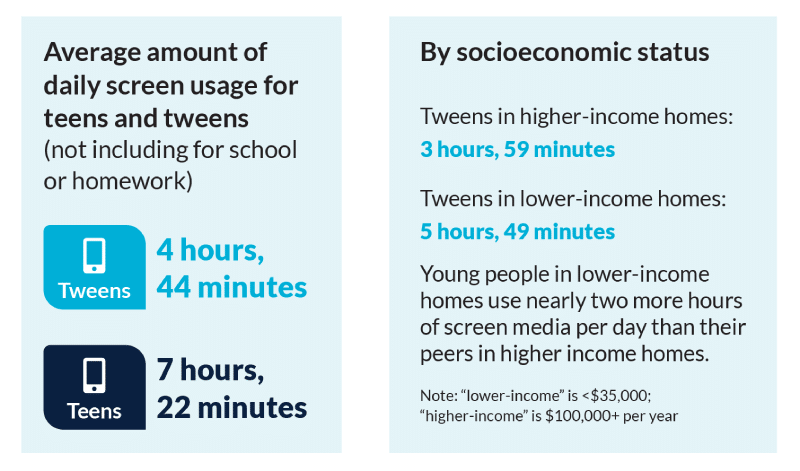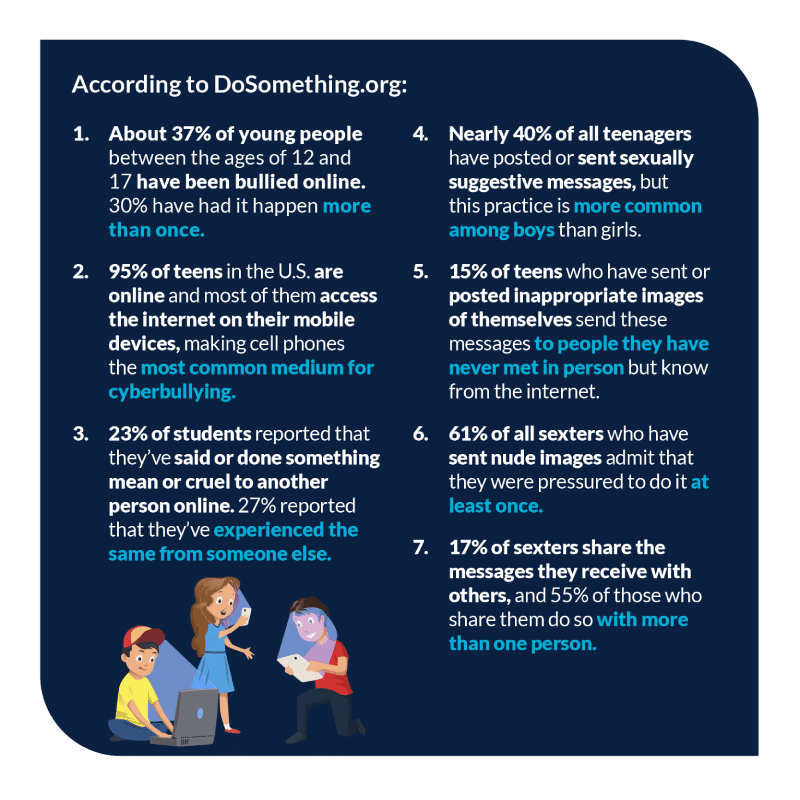What Your District Can Do to Support K-12 Parents
Citizenship lessons have long been a part of school curriculums, but now that so much social interaction and education happens online, it is imperative that schools also address digital citizenship. To help schools reach and support all parents, Lightspeed Systems® created a free downloadable guide all K-12 districts can give out to parents to help them understand what digital citizenship is, why it matters, and how to teach it to their kids.
Schools that aim to become digital citizenship hubs need help from parents and caregivers to teach and reinforce how to be a good digital citizen. Outside of school and homework, children as young as 2-to-4-year-olds often spend over two hours a day looking at a screen—and that number only increases as children become tweens and teens. It’s imperative that parents have frequent, open conversations with their children about healthy online activities and good digital citizenship, and that they start those conversations early.

But parents need guidance, too. Many people with school-age children today didn’t grow up using social media and may be unsure how to help their children navigate unfamiliar terrain like online bullying, the pressure to share personal information or photos, or screentime addiction. Other parents, such as non-English speakers or those with an inability to attend in-person meetings with school leaders, might not have access to the kinds of resources and information that could help.
Below, you’ll find our free, downloadable parent guide, along with ideas about how to get parents involved.
Why digital citizenship is so important
While media and technology hold great promise for learning, children need the right support and education to make healthy and appropriate judgments as they navigate the digital world. Teaching digital citizenship is essential if your district wants to help students achieve and understand digital literacy, online safety, digital responsibility, and digital health and wellness.
Cyberbullying is one major concern for parents and educators alike that digital citizenship training can help address. Digital citizenship means helping students connect online behavior to how they want to be treated. Instilling a sense of empathy in children from an early age is another critically important way to help prevent all kinds of bullying. Here are some current statistics about cyberbullying to keep in mind:
- 23% of students reported that they’ve said or done something mean or cruel to another person online, and 27% reported that they’ve been the victim of the same behavior by someone else
- About 37% of young people between the ages of 12 and 17 have been bullied online, and 30% have had it happen more than once
- 95% of teens in the U.S. are online, and the majority of them access the internet on their mobile device, making it the most common medium for cyberbullying
Digital citizenship training can also help parents address sexting and the sending of inappropriate photos. When parents are aware of the prevalence of sexting, as well as the potential risks, they can be better equipped to have open and honest conversations with their kids about responsible and respectful behavior.
- Nearly 40% of all teenagers have posted or sent sexually suggestive messages, though the practice is more common among boys than girls
- 17% of sexters share the messages they receive with someone else, and 55% of those share them with more than one person
- 15% of teens who have sent or posted inappropriate images of themselves sent those messages to people they had never met in person but knew only from the internet

Tips to get parents involved in digital citizenship
Teaching students about the consequences of irresponsible online behavior is imperative to their safety and success, and schools play an important role. But at the end of the day, parents are responsible for setting rules and limits for their children at home. Schools and parents need to act as a united front.
It’s not an easy task. Parent responses to the implementation of digital citizenship curriculum may vary. Many families already enforce technology boundaries and may be relieved to know these lessons are part of the school’s program. Other caregivers might be guarded about a program that teaches something akin to “morality.” And still other parents might not have the resources or the background knowledge to teach digital citizenship to their children at home.
But the more parents know about your school’s digital citizenship program, the more likely they will be to take co-ownership of the effort. Here are some tips to get parents involved:
- Introduce digital citizenship to parents as early in the year as possible, and encourage even the parents of very young kids to start talking about digital citizenship at home
- Provide parents with digital citizenship resources (and our free guide below)
- Be transparent about the steps your district takes to keep students safe online, including additions to the curriculum and any available workshops for families
- Download a digital citizenship guide to hand out to parents
- Have a digital citizenship check-in during parent-teacher conferences
- Share research and statistics on social media use by children and teens so parents can learn about common risks and problems, and know that they and their children are not alone in facing these issues
- Send family-centered digital citizenship activities home with students to help start an open and healthy dialogue, being sure to make these activities are fully accessible, including to non-English language speakers and people with limited online access
A Ready-Made Digital Citizenship Resource for Parents
To help schools in this effort, Lightspeed Systems® has created a downloadable guide, Encourage Digital Citizenship with Your Child: A Practical Guide for Parents. This ready-made resource can be distributed to parents and caregivers to help introduce and reinforce healthy online habits and skills at home.
Key topics in the guide include:
- What digital citizenship is and why parents should care about it
- How digital citizenship is taught in classrooms today
- How parents and districts can support digital citizenship outside of school
- Why data security is so important
- How to avoid scams and recognize fake information
- What role empathy plays in preventing cyberbullying
- How to create healthy, lifelong online behaviors and habits through boundaries and time management
With each of these topics, we’ve included why it’s important and how parents can help reinforce these habits at home. Because we understand that families, and their children, have unique and specific needs, we have included advice and tips for both ideal and practical situations.

